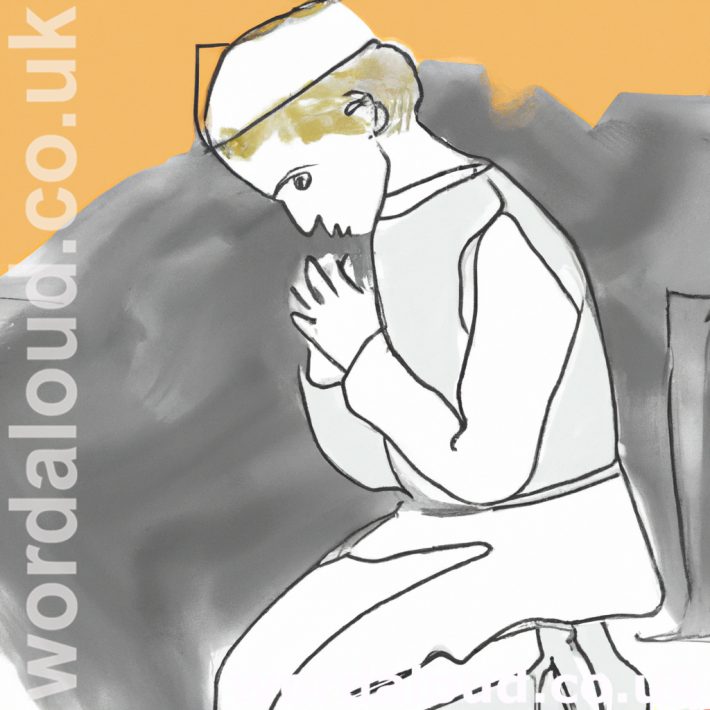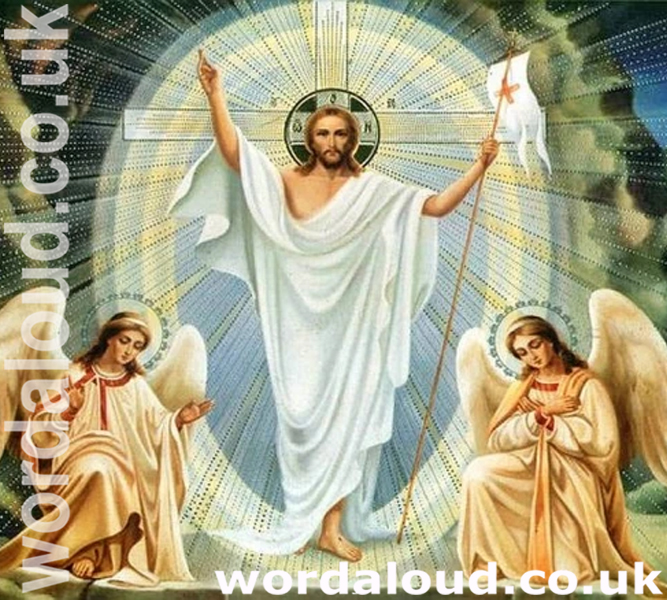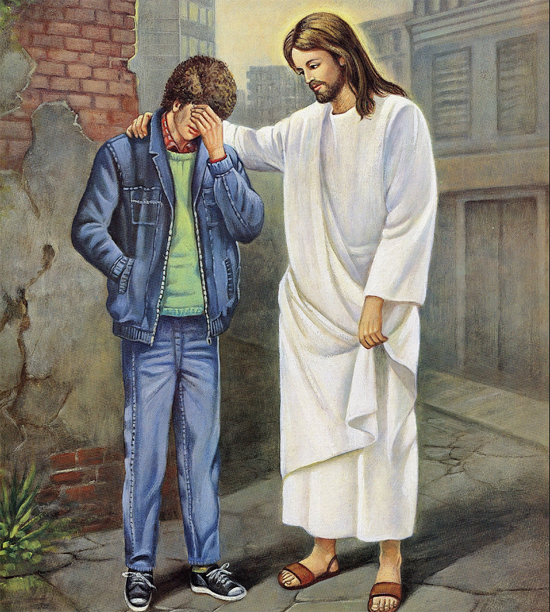Office Of Readings | Saturday, Lent Week 4 | From The Second Vatican Council’s Pastoral Constitution ‘Gaudium Et Spes’ On The Church In The Modern World
‘All human activity is to find its purification in the Paschal mystery.’
Human Progress As Blessing And Temptation
‘Holy Scripture, with which the experience of the ages is in agreement, teaches the human family that human progress, though it is a great blessing for man, brings with it a great temptation.’
The Church acknowledges the value and benefits of human progress—technological, scientific, social—but recognizes that progress alone does not guarantee justice, peace, or happiness. Instead, when such progress is pursued without a moral compass, or when it inflates pride and self-interest, it leads to new dangers: environmental damage, economic inequality, even the threat of self-destruction (e.g., nuclear war, totalitarianism). The reading echoes the biblical theme of Babel—human achievement detached from God leads to division and confusion.
This tension—between gift and temptation—is a key insight of Christian anthropology: that human nature is capable of greatness, but wounded by sin.
Cross And Resurrection As The Measure Of All Things
‘Christians state their belief that all human activity… is to find its purification and its perfection in the cross and resurrection of Christ.’
The Paschal Mystery is the lens through which all human action must be interpreted. It is not merely a theological event but the deepest truth of reality. The cross reveals both the gravity of sin and the cost of redemption, while the resurrection shows the hope and transformation that grace brings. Every effort—scientific discovery, artistic creation, political reform—must be purified from self-glorification and aligned with the humble, self-giving love that Christ demonstrated.
This provides a radical critique of the idea that human endeavor can save itself. It also offers a way forward: all work, even secular or mundane, can participate in redemption when done in love and truth.
Loving The Created World With Freedom
‘Man, redeemed by Christ and made a new creation in the Holy Spirit, can and must love the very things created by God.’
There is no rejection of the material world here. On the contrary, Christians are called to love creation—not possessively or destructively, but with reverence. All created things are gifts from God and should be used in freedom and detachment: ‘having nothing, yet possessing all things.’ This recalls Saint Paul’s attitude (cf. 2 Corinthians 6:10) and reflects a spirituality of stewardship rather than ownership.
The Christian is not called to escape the world but to transfigure it, using its goods with gratitude, generosity, and simplicity.
The Word Became Flesh—God Enters Human History
‘The Word of God… himself became man and lived in the world of men.’
The Incarnation—God becoming man in Jesus Christ—is the theological heart of this reflection. Christ entered human history, not to escape or condemn it, but to redeem and unify it. His humanity sanctifies all aspects of life: work, family, suffering, joy. Through Jesus, all human experience is brought into communion with God.
This incarnational vision affirms the dignity of history and the possibility of holiness in everyday life. It tells us that history matters, the body matters, culture matters. It opposes any false spiritualism that denies the value of this world.
The New Commandment Of Love
‘He reveals to us that God is love… [and] teaches us that the fundamental law of human perfection… is the new commandment of love.’
Love is not a sentiment but the essential law of human transformation. The love of Jesus Christ is sacrificial, universal, and healing. It is also the measure of how Christians should engage in family life, economics, politics, and culture. The way to true human flourishing is through love—not domination, greed, or self-promotion.
This love is not reserved for heroic moments but is to be lived in ‘the ordinary circumstances of life’. It is in small, daily acts of kindness, service, patience, and honesty that the world is redeemed.
Suffering, Witness, And Discipleship
‘He suffered death for us all… and teaches us that we also have to carry that cross…’
Christ’s passion reveals that suffering is not meaningless. Christians are called to follow Jesus by carrying their own crosses—especially the burdens that come from working for peace, justice, and truth in a fallen world. This reflects the Church’s solidarity with all who suffer, and its call to prophetic witness, even when unpopular or dangerous.
The reading implies that discipleship involves sacrifice. But it also brings joy, meaning, and resurrection hope.
The Holy Spirit And The Transformation Of The World
‘Christ… is still at work in the hearts of men through the power of his Spirit…’
The risen Christ is not absent. Through the Holy Spirit, he inspires and strengthens those working for human dignity and the common good. The Holy Spirit’s gifts are diverse—some are called to contemplative life, others to active service—but all are directed toward the sanctification of the world.
The goal is not escape from the world, but its renewal. The Holy Spirit calls Christians to make their lives a gift: to ‘deny their love of self’ and offer all they are and do for God and others.
All May Reach Out To The Future
‘All may reach out to the future, when humanity itself will become an offering acceptable to God.’
The reading closes with a beautiful eschatological vision: humanity, redeemed and sanctified, offering itself back to God. This recalls Romans 12:1—’Offer your bodies as a living sacrifice, holy and pleasing to God.’ Lent, with its call to repentance, self-denial, and conversion, is precisely the season in which this transformation is cultivated.
Human life, in all its complexity, is not a meaningless struggle but a journey toward communion, purification, and glory through the Paschal Mystery.

From The Second Vatican Council’s Pastoral Constitution ‘Gaudium Et Spes’ On The Church In The Modern World
Holy Scripture, with which the experience of the ages is in agreement, teaches the human family that human progress, though it is a great blessing for man, brings with it a great temptation. When the scale of values is disturbed and evil becomes mixed with good, individuals and groups consider only their own interests, not those of others.
The result is that the world is not yet a home of true brotherhood, while the increased power of mankind already threatens to destroy the human race itself.
If it is asked how this unhappy state of affairs can be set right, Christians state their belief that all human activity, in daily jeopardy through pride and inordinate self-love, is to find its purification and its perfection in the cross and resurrection of Christ.
Man, redeemed by Christ and made a new creation in the Holy Spirit, can and must love the very things created by God. For he receives them from God, and sees and reveres them as coming from the hand of God.
As he gives thanks for them to his Benefactor, and uses and enjoys them in a spirit of poverty and freedom, he enters into true possession of the world, as one having nothing and possessing all things. For all things are yours, and you are Christ’s, and Christ is God’s.
The Word of God, through whom all things were made, himself became man and lived in the world of men. As perfect man he has entered into the history of the world, taking it up into himself and bringing it into unity as its head. He reveals to us that God is love, and at the same time teaches us that the fundamental law of human perfection, and therefore of the transformation of the world, is the new commandment of love.
He assures those who have faith in God’s love that the way of love is open to all men, and that the effort to restore universal brotherhood is not in vain. At the same time he warns us that this love is not to be sought after only in great things but also, and above all, in the ordinary circumstances of life.
He suffered death for us all, sinners as we are, and by his example he teaches us that we also have to carry that cross which the flesh and the world lay on the shoulders of those who strive for peace and justice.
Constituted as the Lord by his resurrection, Christ, to whom all power in heaven and on earth has been given, is still at work in the hearts of men through the power of his Spirit. Not only does he awaken in them a longing for the world to come, but by that very fact he also inspires, purifies and strengthens those generous desires by which the human family seeks to make its own life more human and to achieve the same goal for the whole world.
The gifts of the Spirit are manifold. He calls some to bear open witness to the longing for a dwelling place in heaven, and to keep this fresh in the minds of all mankind; he calls others to dedicate themselves to the service of men here on earth, preparing by this ministry the material for the kingdom of heaven.
Yet he makes all free, so that, by denying their love of self and taking up all earth’s resources into the life of man, all may reach out to the future, when humanity itself will become an offering acceptable to God.








